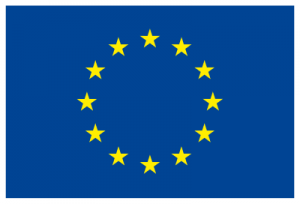Co-creation within CH institutions is not a new phenomenon, but the current practice often is project based, run only by the educational staff, met by scepsis from curators and conservators, thus leaving a lot of potential results untouched. This policy brief, based on preliminary research findings, gives a short overview of the potential benefits of co-creative methods in the CH sector, of the current practices and a number of suggestions to further stimulate co-creation in cultural heritage on a strategic level.
Read More →
This project has received funding from the European Union’s Seventh Framework Programme for research, technological development and demonstration under grant agreement n° 612789.
Cultural Heritage
European Policy Brief. RICHES Taxonomy of cultural heritage definitions.
This policy brief presents evidence and recommendations emerging from the research undertaken to develop the RICHES Taxonomy of terms, concepts and definitions, which aims to: ensure appropriate academic, professional and technical standards for research are met in identifying, analysing and understanding both existing ways and new models for defining CH and CH practices; develop a common CH language to serve the interests of the wider CH community, including policy-makers, cultural ministries of member states, regional, national and state authorities, public administrations, European institutions and researchers and professionals generally.
Read More →European Policy Brief. Digital Copyright Framework. The move from analogue to digital and new forms of IPR.
This policy brief describes how European policy-makers and European cultural heritage institutions should develop European copyright policies and strategies for the cultural heritage sector using the rights to culture and cultural rights as guiding principles. The impact is to lay emphasis on inter alia access to culture, cultural integrity and cultural communication and to develop ways in which copyright can support those goals.
Read More →D5.3 Fiscal and Economic Issues in the Digital Age
Report providing an economic analysis of the impact of taxation, public support and private contribution to the production, distribution and consumption of cultural heritage and to improve understanding of the geography of cultural activities and ways in which fiscal policy can become more efficient in the age of digitization.
Read More →D8.3 International Conference Proceedings – Pisa
Proceedings of the First RICHES International Conference, “Cultural Heritage: Recalibrating Relationships”, which took place in Pisa, at the Museum of Graphics of Palazzo Lanfranchi, on 4 and 5 December 2014.
Read More →D2.1 CH Definitions and Taxonomy
RICHES theoretical framework of interrelated terms and definitions, within which further research may be conducted and shared and CH-related practices may be further developed.
Read More →Digital libraries, collections, exhibitions and users. Exploring the status of digital heritage mediated by memory institutions
Digital technologies are deeply transforming the ways in which heritage institutions mediate their collections and interact with their audiences. Responding to a growing and persistent demand for digital content, institutions make available large amounts of curated digital resources for study and scholarly research, for discovery and creative reuse, for enjoyment, education and learning. This study explores the status of digital heritage mediated by libraries and museums by means of five case studies, in which the results of the research will be illustrated and validated through evaluation with end-users.
Read More →Food and Cultural Heritage in the urban age: the role of local food movements
Food has played a vital role in the formation of European cultural heritage. The production of food has shaped Europe’s rural landscapes, whilst spaces for buying and eating food shape cityscapes, ranging from distinctive restaurant quarters and local food markets, to anonymous peri-urban hypermarkets. Food is integral to everyday behaviours as well as moments of special celebration. It shapes individual and collective identities in a multitude of ways, symbolising nations and evoking individual memories of home.
Read More →The Digitization Age. Mass Culture is Quality Culture
The amount of digitized cultural heritage in Europe continues to grow: the digitization activities have a positive impact on the society, by making the cultural heritage more accessible for the citizens, and by generating benefits to the content owners. Several questions arise about digitized cultural heritage: how can digital cultural data be re-used at best, what is the impact on society and how to preserve it in the long term?
Read More →